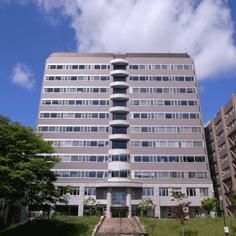Students' Graduation Theses and Dissertations
〔You can do the following research here!!〕
This page explains the various types of studies one can research in the TANIGUCHI laboratory.
①Studies on School Subjects and Classroom Activities
TANIGUCHI is a well-known professional researcher of Teaching and Learning, especially Social Studies and Citizenship Education. Through the studies on School Subjects and Classroom Activities, you may have the opportunity to research on how we should develop students’ performance. Not only that, but you will also have the chance to research how we should develop appropriate teaching and leaning plans, which can achieve this type of aim.
There are several methods to consider when focusing on classroom activities and teaching plans. Educational psychologists, for example, focus on students’ cognitive process seen during classroom activities. Educational sociologists, on the other hand, gather a large size of data regarding classroom phenomena and analyze it from quantity perspectives. However, TANIGUCHI actually focuses on the classroom subjects. TANIGUCHI develops both teaching plans and curriculums and is able to experience them in both public and private schools in Japan. The teaching plans do not focus on “teaching strategy” only, but they also focus on the whole process of plans, from educational aims, curriculum theory, contents arrangement, teaching method, and so forth all the way to children’s reaction.
TANIGUCHI’s methodology of research is composed of three perspectives: Theory approach to curriculum and teaching plans, Historical and Comparative approaches into World excellent curriculum and plans, and Experiment and Feedback on real classroom activities.
②Study of New Type of Teachings
Theory and Comparative approaches into World excellent curriculum and plans are one of TANIGUCHI’s approaches. In this study, one may be provided with the latest teaching and learning plans in my laboratory: Global Education, Multi-cultural Education, Gender Education and Citizenship Education. Many books and plans on this type of recent research are available in my laboratory.
TANIGUCHI consults world research groups about these types of latest education and research. He has presented this type of educational theory in international conferences. He also practices through actual university lectures and seminars, with the teaching methods consisting of Simulation Games, RPG, Debate and Discussion Games.
③Historical Approaches
Historical approach is an important research topic for TANIGUCHI. His PhD dissertation is titled “The Development of Social Studies Curriculum in 1930’s Japan.” He still writes many books, which include historical approaches of Social studies.
Our Graduate School of Education has some excellent researchers of professional Educational Historians. What is difference between their research and ours? In short, TANIGUCHI’s interest concentrates on present classroom activities. A Former PhD dissertation did not describe Social studies curriculum, but instead discussed about the variations of the curriculum of Social studies and showed the merit and limit of it. The dissertation concluded how we should develop (present) Social studies curriculum.
Students who wish to describe the historical situation at the time may prefer studying as an educational historian. However, students who have an interest in present classroom activities and hope to solve present problems from historical perspectives are recommended to study in TANIGUCHI’s Laboratory
〔Doctoral Dissertations〕
2009FY
- Sei IGARASHI, A Study on the Development of Teachers' Performance: The Method of On-the-Job Training for Social Studies Teachers, Mar. 2010.
2008FY
- Akinobu SEKINE, The Formation of Moral Education in Korea: A Focus on the Curriculum Transition from 1945 to 1973, Mar. 2009.
〔MA Theses〕
2008FY
- Mayumi ISHIKAWA, The Transition of Girls’ Educations in Modern Japanese Schools, Mar. 2009.
2005FY
- Hitoshi WATANABE, Decision Making and Citizenship: How Should Children Make Their Decisions Rationally?, Mar. 2006.
- Chihiro MINE, A Study of “New Types of School Management” in Japan: From the Perspectives of Participation of Parents and Community Members to SBM, Mar. 2006.
2004FY
- Yoriko HASHIZAKI, The Transitions of the Concept of “Global Citizen” in the US: The Shift of CTIR Program Caused by the Denver Controversy, Mar. 2005.
〔Graduation Theses〕
2009FY
- Yuta ONODERA, History Education for Democratic Citizens: In the Case of Kevin O‘Reilly’s "Critical Thinking in the United States History," Mar. 2010.
- Jinichiro SAITO, A Study on the Development of Teachers’ Performance: Analyzing Teachers' Life Histories, Mar. 2010.
2007FY
- Mayumi ISHIKAWA, A Study on the Roles and the Social Positions of Female Teachers in 1910’s Japan: From the Views of Transformation of Teachers’ Training System, Mar. 2008.
2006FY
- Genichi GOMI, The Typology of Sexual Education in Japanese Schools, Mar.2007.
2005FY
- Toshiko SATO, Material Literacy and Developing Critical Thinking in Social Studies: In the Case of "Critical Thinking in the United States History," Mar.2007.
- Career Education in 1980's U.S.: In the Case of Oregon State DOE, Mar.2007.
- Yuichi WATANABE, School-Community Cooperation and Improvements in Conditions of Students' Sports Clubs: A Case Study, Mar. 2006.

 Photed by Kazuya Taniguchi
Photed by Kazuya Taniguchi